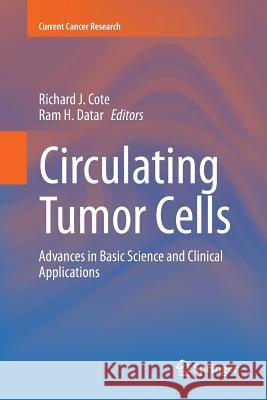Circulating Tumor Cells » książka
topmenu
Circulating Tumor Cells
ISBN-13: 9781493980314 / Angielski / Miękka / 2018 / 333 str.
Kategorie BISAC:
Wydawca:
Springer
Seria wydawnicza:
Język:
Angielski
ISBN-13:
9781493980314
Rok wydania:
2018
Wydanie:
Softcover Repri
Ilość stron:
333
Waga:
0.50 kg
Wymiary:
23.39 x 15.6 x 1.91
Oprawa:
Miękka
Wolumenów:
01
Dodatkowe informacje:
Wydanie ilustrowane











